TUSCALOOSA, Ala. – A University of Alabama researcher is using a new equipment system, the first of its kind in the state, to detect “forever chemicals” in water supplies.
Dr. Leigh Terry has installed a combustion ion chromatography, or CIC, system in her lab. The newly acquired instrument operates at 1,500 degrees Celsius and is designed to break down compounds and analyze water samples for organofluorine compounds, providing a powerful tool for detecting per- and polyfluoroalkyl substances, or PFAS.
PFAS are manmade chemicals that were developed in the 1940s and are used in products such as firefighting foam and nonstick cookware. They persist in the environment and pose potential health risks. Terry’s new CIC system enables bulk fluorine detection, which offers a screening method to determine the presence of PFAS and other fluorinated contaminants in water samples.
“The new CIC instrument enables us to measure the total organofluorine present in water samples,” said Terry, UA associate professor of civil, construction and environmental engineering. “If we detect organic fluorine, then we can take a closer look to identify the specific PFAS compounds present.”
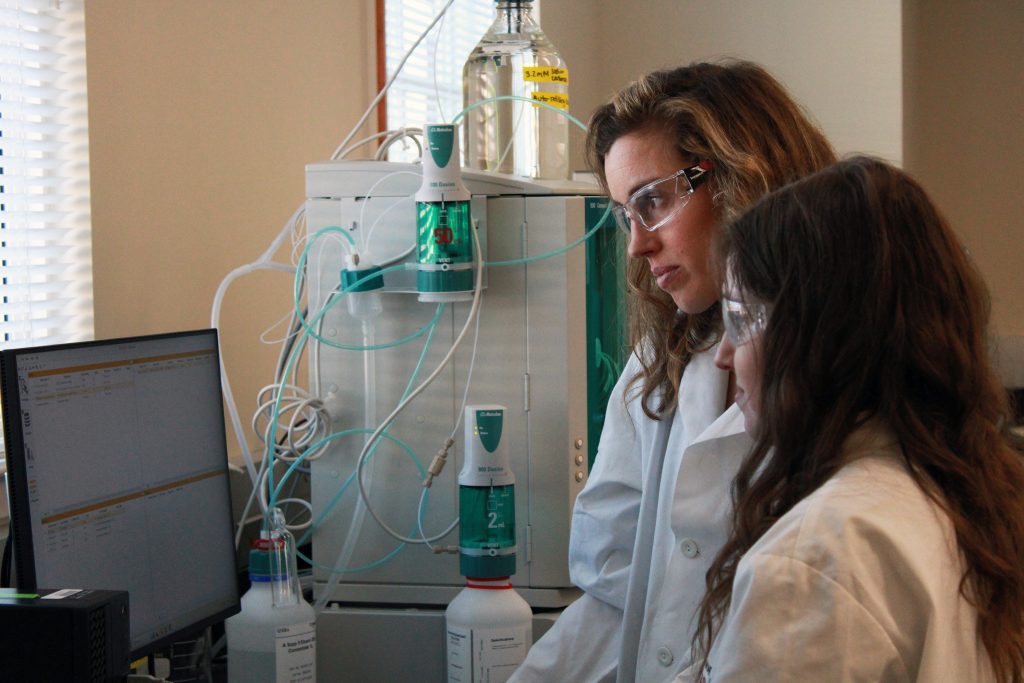
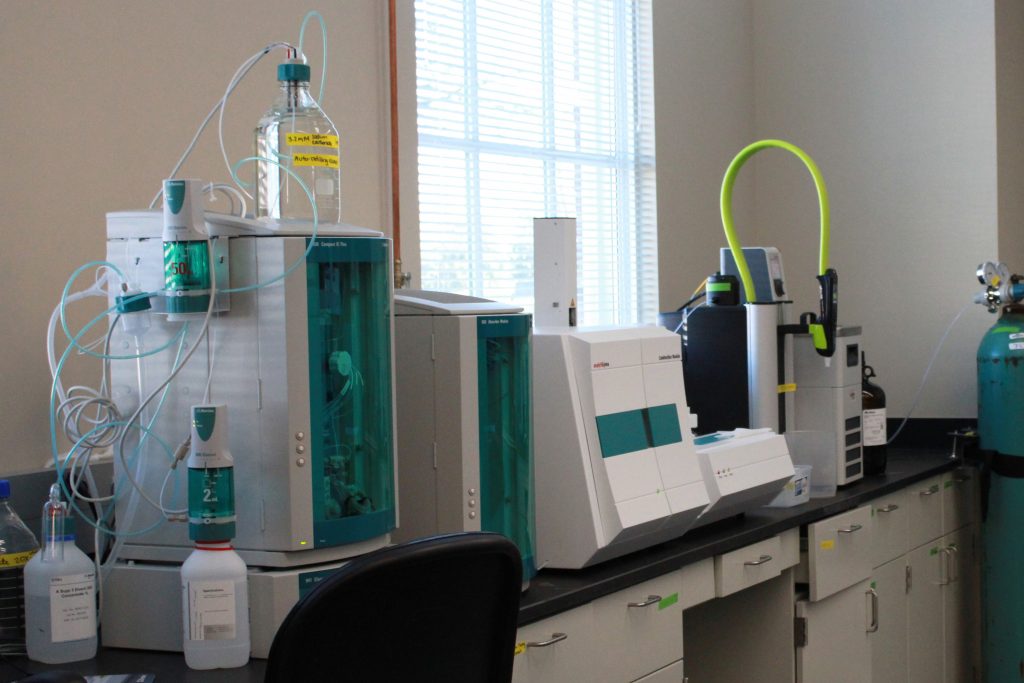
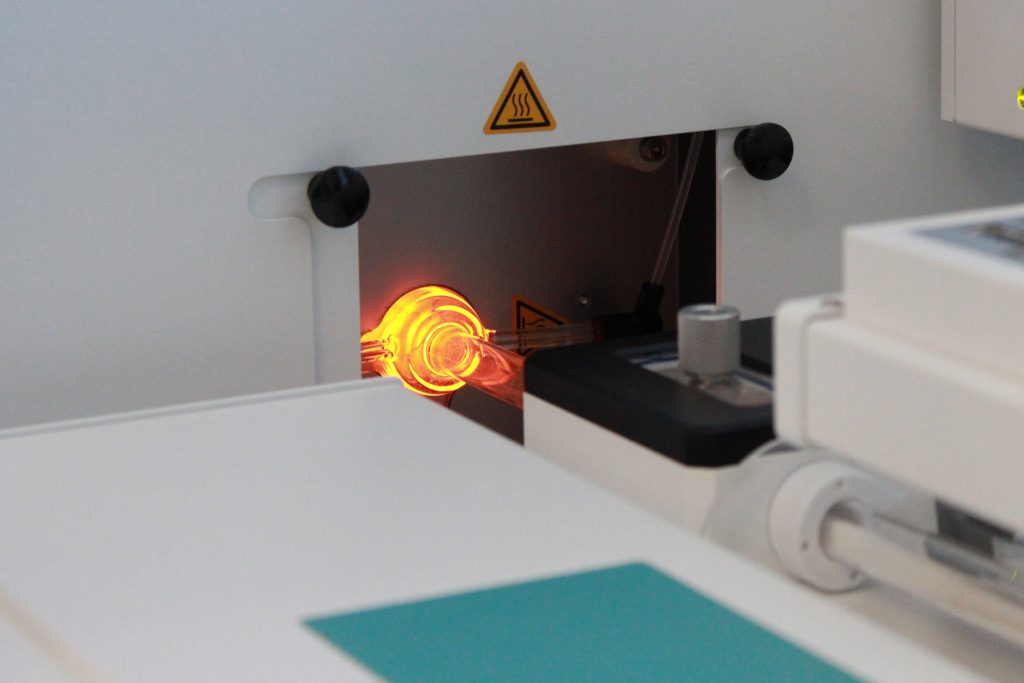
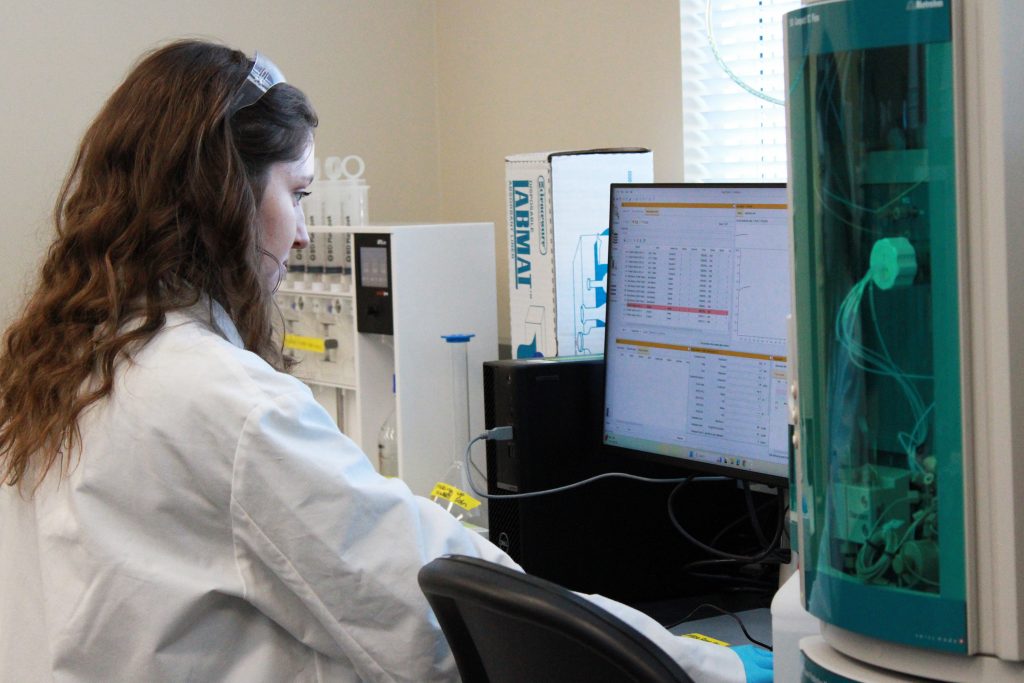
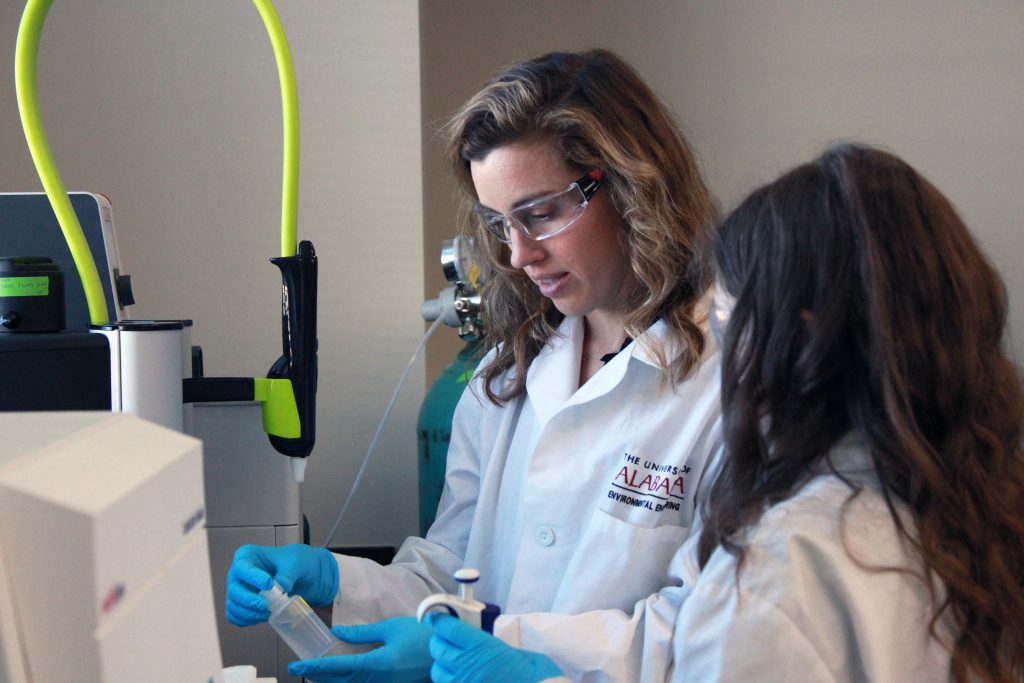
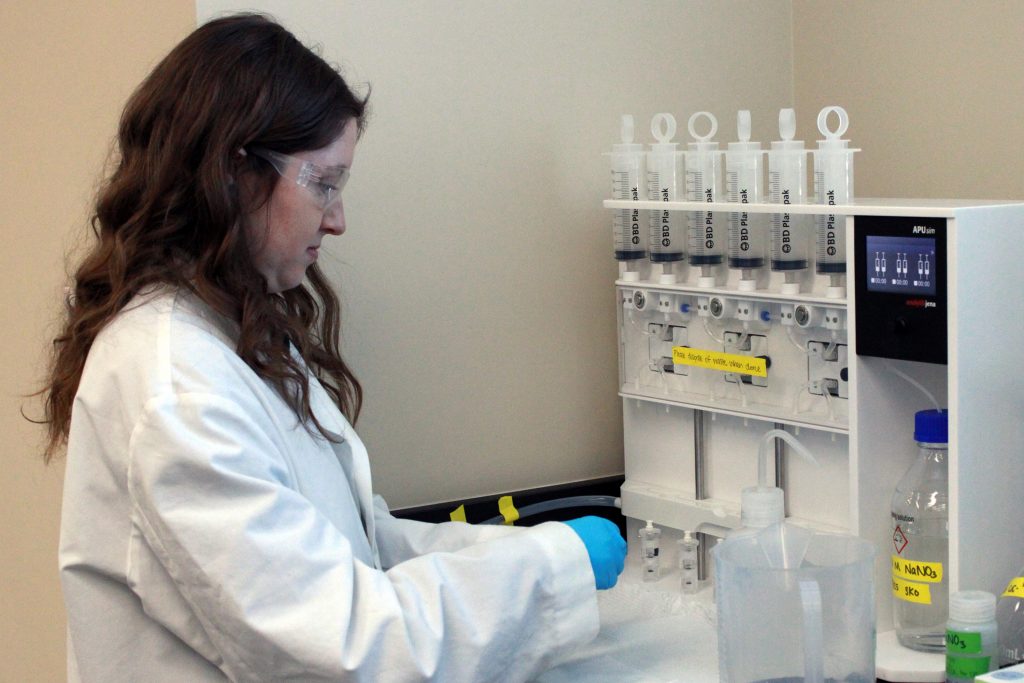
The Environmental Protection Agency is monitoring 29 different contaminants throughout the U.S. Approximately 40% of large utilities that have undergone PFAS testing in Alabama have had at least one or more of those contaminants be detected.
In 2023, Terry received a National Science Foundation EPSCoR award that allows her and a graduate student to collaborate with The Water Tower institute in Buford, Georgia, to investigate PFAS in a full-scale wastewater treatment plant. They bring water samples back to their lab in Tuscaloosa, which means the new equipment also enhances hands-on learning opportunities for UA students.
“I’m really excited to have the new instrument,” said Sarah Ortbal, a Ph.D. candidate in civil engineering. “I’ve been using this instrument at The Water Tower, and we analyze those samples over there. Having this instrument on campus now allows me to travel less, have capabilities at UA to be able to analyze this and expand the capabilities to other projects as well.”
Ortbal and other students are also responsible for maintaining the CIC, providing them with valuable technical skills. Their research on tracking PFAS contamination through wastewater treatment processes helps to determine where these chemicals persist and how they can be effectively removed.
“Knowledge is power,” said Terry. “It’s important to know what’s in your water to protect your health, the well-being of others and the environment. Clean, safe water is essential for everyone.”
As part of its mission to support faculty and to help train the next generation of water scientists, the Alabama Water Institute contributed $100,000 toward the purchase of the CIC.
“We couldn’t do this research without the support of AWI, as well as the College of Engineering, Center for Water Quality Research, Office of Research and Economic Development and the Civil, Construction and Environmental Engineering department,” Terry said. “AWI has played a key role in establishing and supporting labs, including mine. Their support empowers UA researchers to advance science, protect the environment and safeguard the health of Alabama’s citizens.”